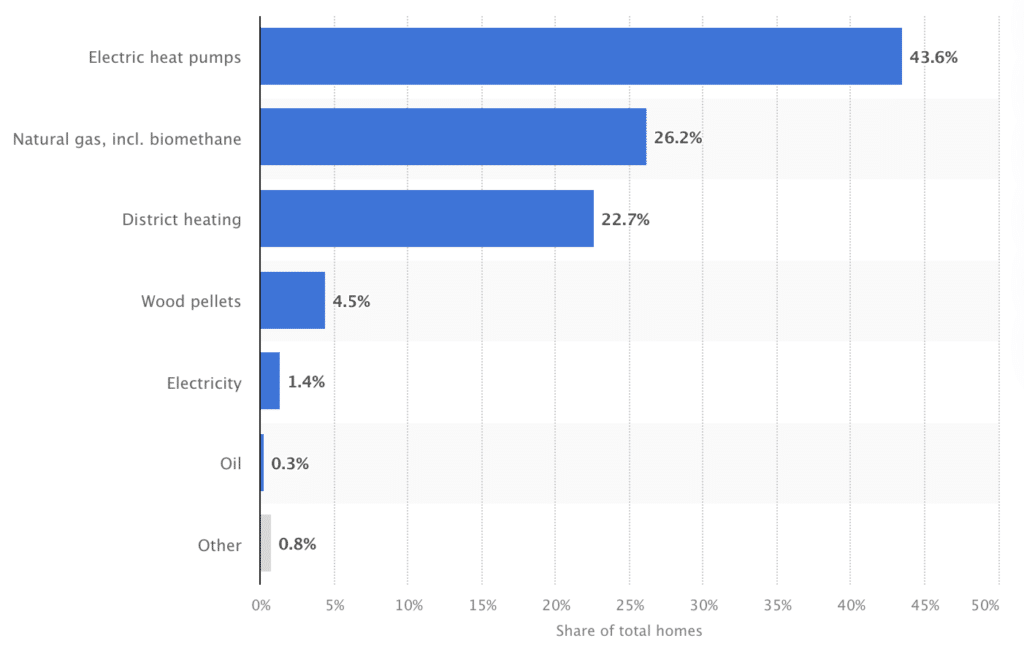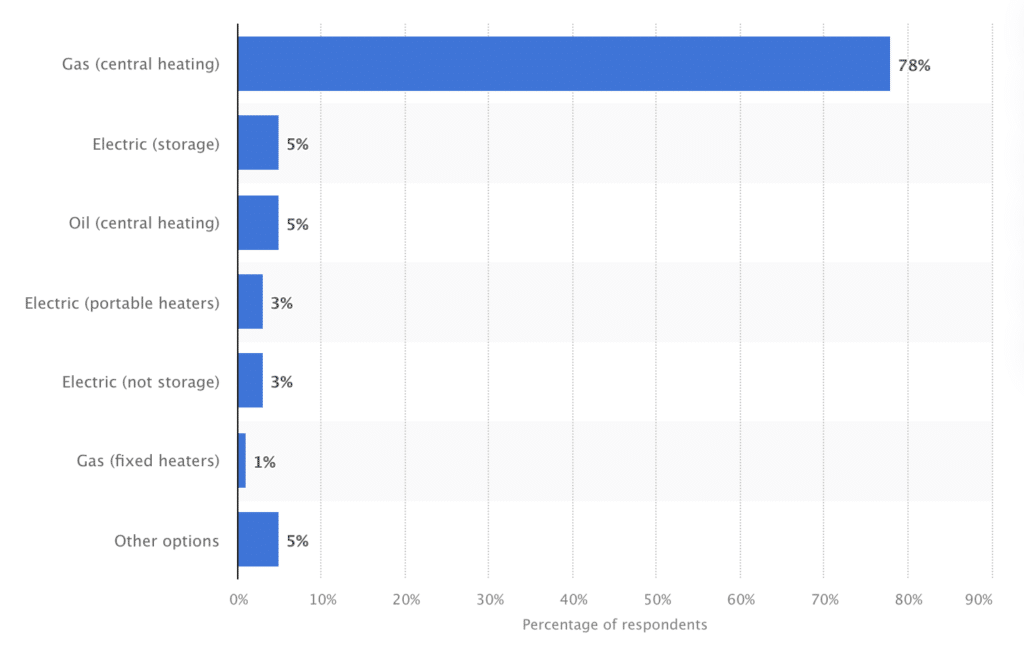Introduction – Average Heating Fuel Use
This is the second post in our Beginner’s Guide to Heating Bills, it follows average heating bills. Do you know how much energy a home uses for heating? Most people have a rough idea of what they spend, but few understand how much energy they use.

Winter Fuel Use in the US, UK and Germany
In the chart above we compare the average winter fuel use for the same five homes we used in the first post. This time instead of cost we look at kWh of fuel used per home over the winter heating period.
Although heating system efficiency also plays a role in these differences, the main drivers are climate, quality of insulation and house size.
Let’s take a look at the US examples first.
United States Fuel Use
Heating oil is only used by about 6% of US homes, most commonly in New England (the northeast) where it gets pretty cold. More recently in the Northeast, there has been growing popularity and government support of installing heat pumps to replace all fuel-based heating, primarily for savings as it is highly efficient but secondarily for reduction of carbon emissions (yay!).
Natural gas is the primary heating fuel in half of US houses, and dominates in the West, Midwest and Northeast (where is the Mideast?). As a cheaper fuel it is common in cooler states where they need more heat. Electric heating is used by 38% of US homes, most commonly in the South where they need less heat. Electric baseboard is quite common with the heat carrier fluid inside being water or oil. On this site we’ve reviewed electric baseboard heaters with oil.
European Fuel Use Examples: Germany and UK
The German and UK heating use for gas is quite similar. Germans have slightly larger houses on average, with better insulation, but it is colder. Since the introduction of feed-in tariffs and net metering, Germany has also seen a rise in residential solar systems so during winter there’s a small fraction of self-generated electricity. In addition, new homes are dominated by heat pump installations rather than fuel-based heating.
In fact statistics show that as of 2021, 44% of new German residential construction is electric heat pumps. We don’t lump heat pumps with electric heating because the former is much more efficient than the latter, as it relies on “moving heat” from the outside air into the inside of the house.

In the UK the most common type of heating is by natural gas. Since the start of the Ukraine-Russia conflict, natural gas prices have spiked incredibly high. This has pushed up not only the cost of natural gas, but also that of electricity. The reason electricity prices rise too is because a fraction of electricity is generated from the burning of natural gas.

If you really want to start digging into heating use then it is useful to consider it per unit of floor area. An older post of ours , how much heating energy do you use, does this for European countries and also looks at climate adjustments.
To get from heating fuel use back to bills you need to consider prices, which we do in the next post of heating cost comparisons.
Lindsay Wilson
I founded Shrink That Footprint in November 2012, after a long period of research. For many years I have calculated, studied and worked with carbon footprints, and Shrink That Footprint is that interest come to life.
I have an Economics degree from UCL, have previously worked as an energy efficiency analyst at BNEF and continue to work as a strategy consultant at Maneas. I have consulted to numerous clients in energy and finance, as well as the World Economic Forum.
When I’m not crunching carbon footprints you’ll often find me helping my two year old son tend to the tomatoes, salad and peppers growing in our upcycled greenhouse.
